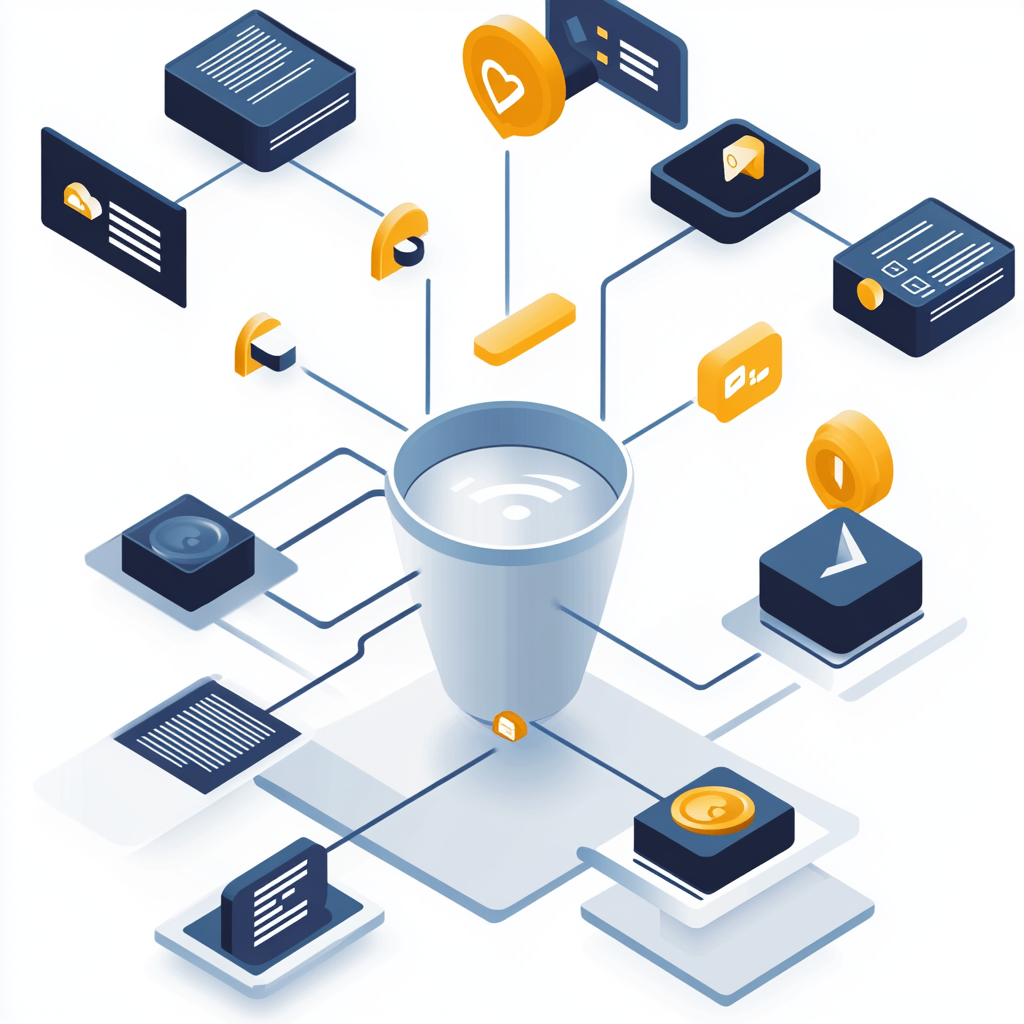The marketing landscape has transformed dramatically with artificial intelligence becoming the driving force behind successful campaigns. Modern businesses are discovering that AI marketing tools can deliver unprecedented returns on investment, with many companies experiencing growth rates that seemed impossible just a few years ago. These intelligent platforms are revolutionizing how marketers understand their audiences, optimize campaigns, and drive conversions through sophisticated automation and predictive analytics.
This comprehensive guide will walk you through everything you need to know about leveraging AI marketing tools to maximize your ROI. You’ll discover the core functionalities that set these platforms apart, explore the leading solutions available today, and learn proven strategies for implementation and measurement. Whether you’re a marketing professional looking to enhance your current efforts or a business owner seeking to understand the potential of AI-driven marketing, this guide provides the insights you need to make informed decisions and achieve remarkable results.
What are AI marketing tools
AI marketing tools are sophisticated software platforms that leverage artificial intelligence technologies to automate, optimize, and enhance marketing activities. These tools go far beyond traditional marketing software by incorporating machine learning algorithms, predictive analytics, and natural language processing to deliver personalized experiences at scale.
The core functionality of AI marketing tools revolves around their ability to process vast amounts of data in real-time and make intelligent decisions without human intervention. Unlike conventional marketing platforms that require manual configuration and constant oversight, AI-powered solutions continuously learn from customer interactions, campaign performance, and market trends to improve their effectiveness automatically.
Key AI Technologies in Marketing
Machine learning forms the backbone of most AI marketing platforms. This technology enables systems to identify patterns in customer behavior, predict future actions, and recommend optimal strategies. For example, machine learning algorithms can analyze thousands of email campaigns to determine the best send times, subject lines, and content formats for specific audience segments.
Predictive analytics takes this capability further by forecasting customer lifetime value, churn probability, and purchase intent. These insights allow marketers to allocate resources more effectively and focus their efforts on the most promising opportunities. The predictive models become more accurate over time as they process additional data points and learn from campaign outcomes.
Natural language processing enables AI marketing tools to understand and generate human-like text, making them invaluable for content creation, social media management, and customer service automation. These capabilities allow for personalized communication at a scale that would be impossible with manual processes.
Automation Capabilities
The automation features of AI marketing tools extend across multiple channels and touchpoints. Campaign optimization happens continuously, with algorithms adjusting bid amounts, audience targeting, and creative elements based on real-time performance data. This level of automation ensures that marketing budgets are allocated to the highest-performing elements while underperforming components are automatically paused or modified.
Lead scoring and nurturing processes become significantly more sophisticated with AI integration. These systems can evaluate prospect behavior across multiple touchpoints, assign dynamic scores based on engagement patterns, and trigger personalized follow-up sequences that adapt to individual preferences and behaviors.
Top AI marketing tools comparison
The AI marketing platform landscape includes several established leaders and emerging innovators, each offering unique strengths and capabilities. Understanding the distinctions between these platforms is crucial for selecting the right solution for your specific needs and objectives.
| Platform | Primary Strengths | Best For | Key AI Features |
|---|---|---|---|
| HubSpot AI | Integrated CRM and marketing automation | Small to medium businesses | Predictive lead scoring, content optimization |
| Salesforce Einstein | Advanced analytics and personalization | Enterprise organizations | Predictive analytics, automated insights |
| Adobe Sensei | Creative and content intelligence | Content-heavy marketing teams | Image recognition, content personalization |
| Emerging Platforms | Specialized AI capabilities | Niche requirements | Conversational AI, voice optimization |
Enterprise Solutions
Salesforce Einstein represents the pinnacle of enterprise AI marketing capabilities. This platform excels in processing complex customer data across multiple touchpoints and generating actionable insights for large-scale operations. The predictive analytics capabilities can forecast customer behavior with remarkable accuracy, enabling enterprise marketing teams to make data-driven decisions with confidence.
Adobe Sensei focuses heavily on creative intelligence and content optimization. This platform is particularly valuable for organizations that rely heavily on visual content and need to personalize experiences across multiple channels. The image recognition and automatic tagging capabilities streamline content management while the personalization engine delivers relevant experiences to individual users.
Mid-Market and Small Business Options
HubSpot AI provides an excellent balance of functionality and accessibility for growing businesses. The platform integrates seamlessly with existing CRM data to provide predictive lead scoring and automated nurturing sequences. The user-friendly interface makes it accessible to marketing teams without extensive technical expertise while still delivering sophisticated AI-powered insights.
Emerging platforms in the AI marketing space often focus on specific use cases or industries. Conversational AI tools excel at customer service automation and lead qualification, while voice optimization platforms help businesses prepare for the growing importance of voice search and smart speaker interactions.
How AI tools increase ROI
The mechanisms through which AI marketing tools drive ROI improvements are both diverse and powerful. These platforms create value through enhanced efficiency, improved targeting accuracy, and the ability to scale personalized experiences across large customer bases.
Personalization at Scale
Personalization capabilities represent one of the most significant ROI drivers for AI marketing tools. Traditional personalization efforts are limited by human capacity and manual processes, but AI-powered platforms can create unique experiences for thousands of customers simultaneously. This level of personalization leads to higher engagement rates, increased conversion rates, and improved customer satisfaction.
Dynamic content optimization ensures that each customer sees the most relevant messages, offers, and product recommendations based on their individual behavior patterns and preferences. This targeted approach reduces wasted ad spend while increasing the likelihood of conversion, directly impacting the bottom line.
Predictive Customer Behavior Analysis
Predictive analytics capabilities enable marketers to anticipate customer needs and behaviors before they occur. This foresight allows for proactive campaign adjustments, inventory planning, and resource allocation. By identifying customers who are likely to churn, purchase, or upgrade, marketing teams can focus their efforts on the most impactful activities.
The ability to predict customer lifetime value helps organizations make informed decisions about acquisition costs and retention investments. This strategic approach to customer relationships ensures that marketing budgets are allocated to activities that generate the highest long-term returns.
Automated Campaign Optimization
Continuous optimization capabilities eliminate the manual trial-and-error process that characterizes traditional campaign management. AI algorithms can test multiple variables simultaneously and make real-time adjustments based on performance data. This automated approach leads to faster optimization cycles and better overall campaign performance.
Bid management and budget allocation become more efficient when AI systems can analyze market conditions, competitor activity, and audience behavior to make optimal spending decisions. This level of optimization ensures that every marketing dollar is working as hard as possible to generate returns.
Common AI marketing implementation challenges
Despite the significant benefits of AI marketing tools, organizations often encounter obstacles during implementation that can impact their success. Understanding these challenges and developing strategies to address them is crucial for achieving the desired ROI improvements.
Data Quality and Integration Issues
Data quality forms the foundation of effective AI marketing implementation. Poor data quality can lead to inaccurate predictions, ineffective personalization, and suboptimal campaign performance. Many organizations discover that their existing data collection and management practices are insufficient for AI-powered marketing initiatives.
Integration complexities arise when attempting to connect AI marketing tools with existing systems and databases. Legacy systems may not be compatible with modern AI platforms, requiring significant technical work to establish proper data flows. These integration challenges can delay implementation and increase costs if not properly planned.
Team Training and Change Management
The human element of AI marketing implementation often presents unexpected challenges. Marketing teams may resist new technologies or struggle to understand how to leverage AI capabilities effectively. Comprehensive training programs and change management strategies are essential for ensuring that teams can maximize the value of their AI marketing investments.
Skill gaps in data analysis and AI technology understanding can limit the effectiveness of implementation efforts. Organizations may need to invest in additional training or hire specialized talent to fully capitalize on their AI marketing tools.
Budget and Resource Considerations
AI marketing tools often require significant upfront investments in software licenses, implementation services, and training. Organizations must carefully evaluate the total cost of ownership and develop realistic timelines for achieving ROI. Budget constraints can limit the scope of implementation or force organizations to compromise on functionality.
Resource allocation challenges extend beyond financial considerations to include time and personnel commitments. Successful AI marketing implementation requires dedicated project management and ongoing optimization efforts that may strain existing resources.
AI marketing ROI measurement strategies
Measuring the return on investment from AI marketing tools requires a comprehensive framework that goes beyond traditional marketing metrics. The sophisticated capabilities of these platforms demand equally sophisticated measurement approaches to accurately assess their impact and value.
Key Performance Indicators
Traditional marketing KPIs must be expanded to capture the full value of AI marketing implementations. Advanced attribution models are necessary to understand how AI-powered personalization and optimization efforts contribute to conversions across multiple touchpoints and channels.
Customer lifetime value metrics become particularly important when evaluating AI marketing ROI, as these tools often excel at improving long-term customer relationships rather than just immediate conversions. Tracking changes in customer retention rates, average order values, and purchase frequency provides insight into the deeper impact of AI-powered marketing efforts.
Testing and Optimization Frameworks
A/B testing methodologies must evolve to accommodate the dynamic nature of AI marketing tools. Traditional testing approaches may not capture the full impact of machine learning algorithms that continuously optimize campaign elements. Multivariate testing and holdout group strategies provide more accurate assessments of AI tool effectiveness.
Control group analysis helps isolate the specific impact of AI marketing tools by comparing performance against baseline campaigns or customer segments that don’t receive AI-powered optimization. This approach provides clear evidence of ROI improvements directly attributable to AI implementation.
Long-term Value Assessment
ROI measurement for AI marketing tools must consider both immediate and long-term value creation. The learning capabilities of these platforms mean that their effectiveness often improves over time, making short-term assessments potentially misleading. Establishing measurement frameworks that capture this evolution is crucial for accurate ROI evaluation.
Efficiency gains and cost reductions represent significant but sometimes overlooked sources of ROI from AI marketing tools. Automation capabilities can reduce manual labor requirements, while improved targeting accuracy can decrease wasted ad spend. These operational improvements contribute substantially to overall ROI and should be included in comprehensive measurement strategies.
The future of marketing belongs to organizations that can effectively leverage artificial intelligence to understand their customers, optimize their campaigns, and deliver personalized experiences at scale. AI marketing tools offer unprecedented opportunities to achieve remarkable ROI improvements through sophisticated automation, predictive analytics, and continuous optimization capabilities.
Success with AI marketing implementation requires careful planning, realistic expectations, and comprehensive measurement strategies. By understanding the capabilities and limitations of different platforms, addressing common implementation challenges, and establishing robust ROI measurement frameworks, organizations can maximize the value of their AI marketing investments and achieve sustainable competitive advantages in an increasingly digital marketplace.



